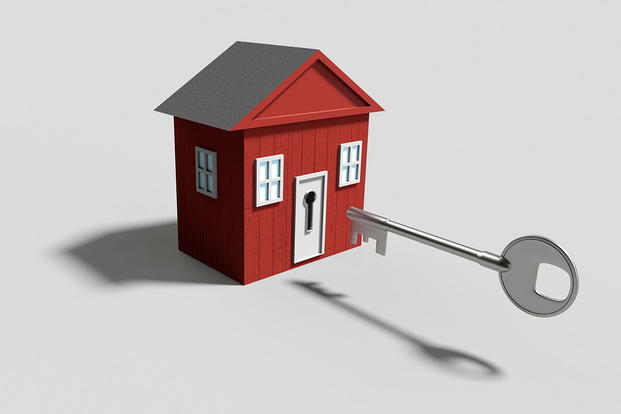You’re finally ready to buy your first home, and you’re considering a VA home loan. Don’t let unanswered questions stop you from moving forward.
Buying your first home is one of life’s major milestones. But, like many of life’s achievements, homeownership comes with uncertainties. How much will it cost? Will I be better off as an owner than a renter? You don’t have to go at it alone. Here are the answers to the top 5 most common first-time homebuyer questions.
If your question isn’t answered here, contact a VA specialty lender today.
Q: I heard that not all VA purchase loans are obtained without a down payment. Will I have to make a down payment on my first home?
The top reason cited by VA borrowers for using their home loan benefits is for the zero-down-payment feature. In fact, according to 2013 VA numbers, 89% of all VA purchases were made with no down payment. Various reasons explain the other 11%. For instance, some wish to reduce their VA funding fee with a down payment. Others may have purchased a home priced above the loan limit in their area. And, some may not have enough entitlement to secure the loan, so a down payment is required. If your goal is to get a no-down-payment VA loan on your first home, then you will want to purchase a home within your county’s loan limits.
Q: Everybody says it’s next to impossible to get a loan these days? Do I have to have perfect credit to qualify for a VA loan?
New QM (stands for qualified mortgage) standards have raised the bar for certain mortgages. But, the VA–loan-specific QM rule doesn’t change the VA’s loan origination regulations. VA-approved lenders will carry on with the same sensible underwriting the VA has required for decades.
So, as it has been in the past, you don’t need perfect credit to qualify for a VA loan. But, many lenders look for your credit score to be around 640 or higher. If you want to get a copy of your credit report, the Federal Reserve recommends just one site for free credit reports: www.annualcreditreport.com. There you may glean tips on what to look for when you read your report, what affects your score and how to get your score up. Sometimes it’s just a matter of paying down a few credit cards or having incorrect negative ratings removed from your credit report.
Q: If I don’t need a down payment for a VA loan, does that mean I don’t need any cash at closing?
The amount of cash a VA borrower brings to closing depends on a few things. It’s possible for the seller to agree to pay all of your allowable closing costs and up to 4% concessions. This can include your VA funding fee. The funding fee for first-time homebuyers is 2.15% for regular military and 2.4% for Reservists/Guard members. Knowing about seller-paid fees before you start working with a Realtor can help you negotiate your purchase contract accordingly.
Another possibility is to roll your funding fee into the loan. If you do this, just understand that you pay interest on that amount for the life of the loan rather than a one-time fee upfront. Borrowers paying zero cash at closing happens, but you may need to cover some of the fees that the seller doesn’t agree to pay and that can’t be rolled in to your loan. Your loan officer will be able to estimate your cash for closing, and an exact amount can be calculated prior to signing once title fees are calculated.
Want to learn more about seller-paid closing costs on a VA loan?
Q: It’s seems rates are up one day and down the next. How can I get the lowest interest rate?
Mortgage rates can be a mystery. What we do know is that they are still in the historically low range. Remember the days when 30-year fixed rates exceeded 15% in the 1980s? A change of a tenth or two of a point won’t change your payment a whole lot, but larger changes can make a difference. No matter where the rates fall when you decide to move forward, interest rates for VA loans are competitive with conventional rates.
Q: Will I really be better off owning a home than renting one?
According to The National Association of Realtors®, buying is currently cheaper than renting a comparable home in almost every U.S. market. And, the long-term benefits of owning a home can outweigh those of renting. As a renter, you write a check to your landlord each month and never see any return. As an owner, you make a monthly mortgage payment. A portion of that payment goes toward paying down the principal of your home. That can translate into home equity. You can also build home equity if the value of your home goes up. On the flip side, if you’re renting a home, your rent may go up. By owning a home with a fixed-rate VA loan, your monthly mortgage payment (principal and interest) stays the same for the life of your loan.
Ready to Get Started?
If you're ready to get started, or just want more information on the process, the first step is to get multiple no-obligation rate quotes. You can then discuss qualifications, debt to income ratios, and any other concerns you have about the process with the lenders.










